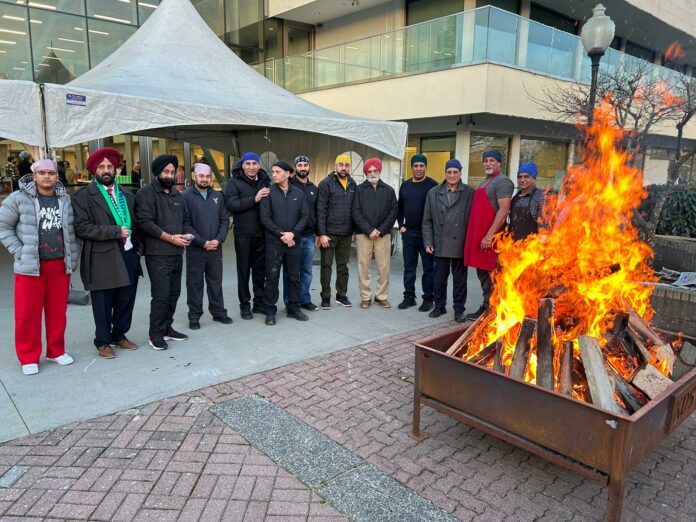By Zile Singh
Festivals offer unique opportunities for active participation, skill development, volunteering, and contribute significantly to social, cultural, economic, and environmental development.
Among the rich North Indian festivals, Lohri stands out as a vibrant celebration. Celebrated every year on January 13, by Sikhs and Hindus, it marks the end of the Winter Solstice and harvesting of the Rabi crops.
This festival, celebrated under different names, embodies rich cultural diversity of India. In the North it is called Lohri, Pongal in the South, and Makar Sankranti in the West. In Gujarat it is called Uttarayan. Legend has it that after spending fifty-one days on the arrow bed, Bhishma, the hero of Mahabharata left his body at his will on the auspicious day of Uttarayana.
The Indian Diaspora proudly celebrates this festival in various forms. Like previous years, this year Lohri was celebrated with pomp and show at Khalsa Diwan Society, 8000, Ross Street, Vancouver on Saturday, January 13.
A special programme was made by lighting bonfires and praying to God while making rounds around the fire. Sweets like gajak, peanuts, til etc., were distributed. Songs and dance also were performed.
Eighteen couples who had their first child as a girl or a boy during the past year celebrated Lohri of their newborns with their families and friends. Minus 13-degree Celsius temperature could not hold back the sangat to enjoy the special langar (makki di roti and saron da saag) prepared for the occasion.
Prayers were offered for the health, happiness, and long life of the newborn babies and their parents. Volunteers worked several hours in advance to make the celebration a success. Mr. Kuldip Thandi, President KDS, Giani Harminderpal Singh, and his team honoured the newborns with certificates.
The holy scriptures of Sikhism state that women are entitled to the same rights and privileges as men, and women are allowed to lead congregations, as well as serve as spiritual leaders in the Sikh faith.
The main theme of Lohri’s song is related to the legend of Dulla Bhatti who lived in Punjab during the reign of Mughal emperor Akbar (1556-1605). Dulla Bhatti saved girls being powerfully taken to be sold in the slave market in the Middle East.
Full translation of the Lohri Song
Pretty girl!
Who will take care of you?
Dulla Bhatti will!
Dulla’s daughter got married
He gave her one kilo of sugar!
The girl is wearing a red wedding suit!
But her shawl is torn!
Who will stitch her shawl?
The uncle made choori –
The landlords plundered it –
The landlords are beaten up!
Lots of innocent boys came
One innocent boy got left behind
The soldiers caught him!
The soldier hit him with a brick!
Now you may cry or howl!
Give us Lohri and may you live long as a couple!
———————————-
Zile Singh is a columnist, author, poet, human rights activist, golfer, vipassana meditator and an Ambassador(retd.)





